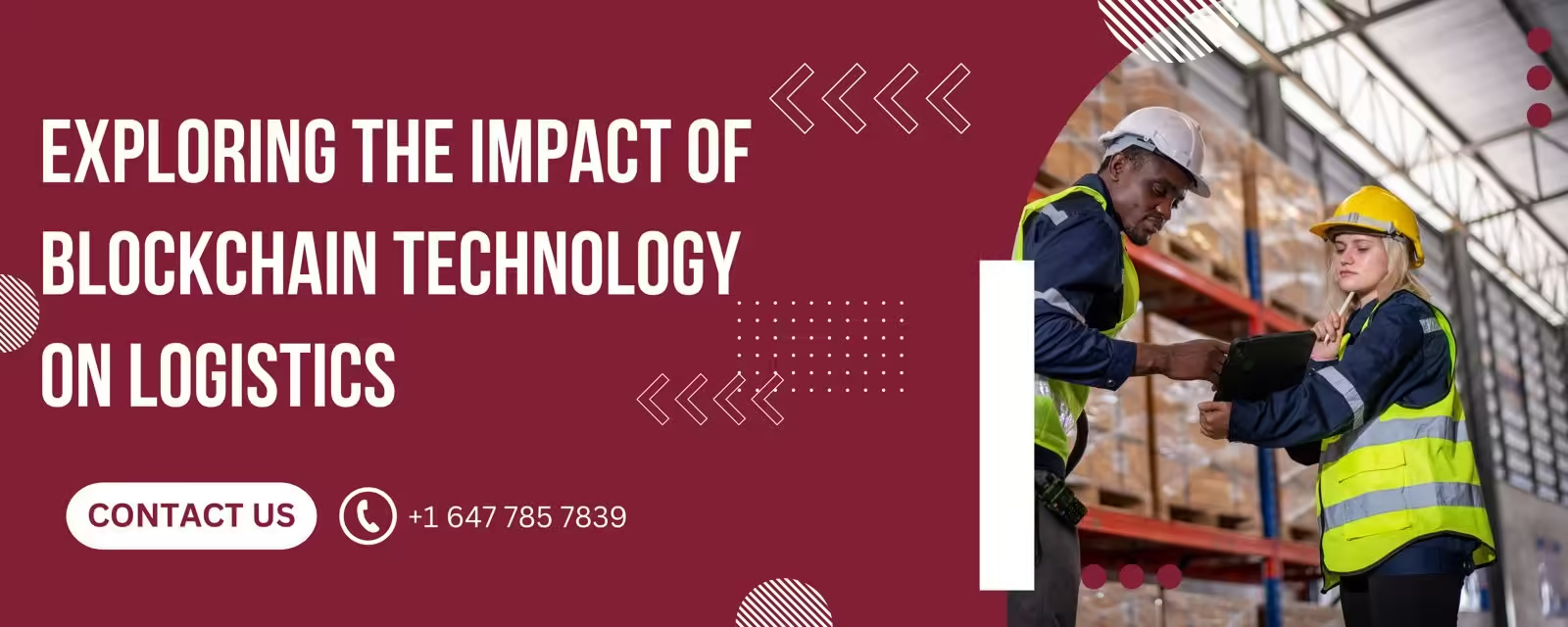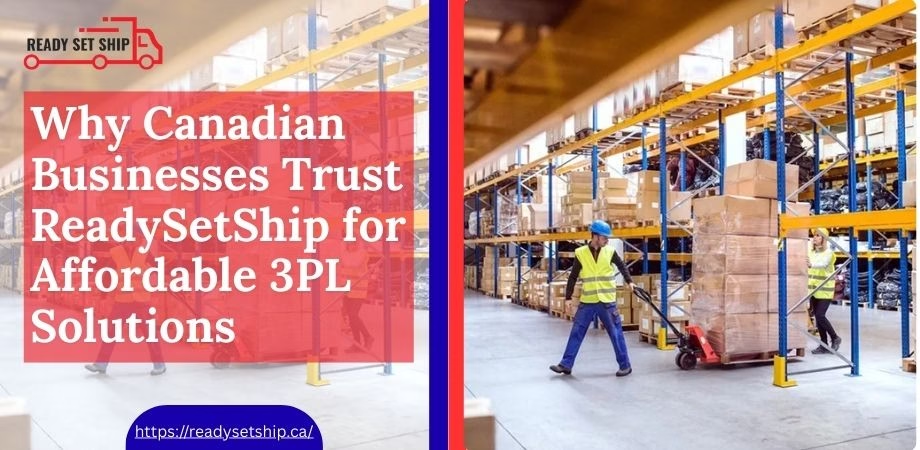Blockchain technology has only recently been a game-changer
across industries. Since this technology is undergoing adoption in logistics,
it is fundamentally very significant for augmenting supply chain operations
since most businesses are now searching for innovative ways to boost their
logistics. Blockchain logistics boasts unparalleled transparency, security, and
efficiency in transforming the entire process of tracking and managing goods
throughout the supply chain. Benefits of Blockchain in Logistics: Exploring the
Impact on the Future Supply Chain Innovation
What is
Blockchain?
Understanding blockchain technology is essential before
exploring its impact on logistics. Fundamentally, blockchain refers to a
decentralized digital ledger ensuring the secure recording of transactions
across several computers. Data recorded there cannot be easily modified without
the consent of all involved members of the network. This transparency and
security stemming from blockchain make it a perfect solution for industries
needing trust and traceability over their processes just like logistics.
Change in Logistics with Blockchain
1. Increased Visibility
Blockchain logistics can provide end-to-end visibility in
the supply chain. With a blockchain, all kinds of transactions and movement of
goods can be recorded. There’s one source of truth-an immutable chain. This
level of transparency is essential for
Monitoring Consignments: Stakes in the firm can,
therefore, track where and how things stand in real-time, minimizing
uncertainty and increasing some decisions.
Compliance and Auditing: The use of blockchain makes
compliance with the regulation easier since there is a clear record of every
transaction. The genuineness and origin of consignments by companies can thus
be easily known, proving crucial in industries such as pharmaceuticals and food
products.
2. Higher Security
Fraud, as well as data breaches, are massive risks involved
with logistics. With blockchain comes enhanced security for the following
reasons:
Data integrity: The blockchain is immutable
primarily, with data that cannot be deleted or altered without a consensus.
This reduces the possibility of fraud and errors in shipment records.
Smart Contracts: The Blockchain permits
intelligent contracts, self-executing contracts with terms and conditions
directly written into code. They can execute any transaction where all or some
conditions have been met without needing intermediaries and minimize fraud cases.
3. Increased Efficiency
Logistics efficiency leads to significant cuts in costs and
rapid delivery. Blockchain technology increases efficiency in the following:
Streamlining
Processes: The
intelligent contracts blockchain allows it to automate most processes, doing
away with paperwork and thereby saving a lot of time in paperwork. It ensures
processes are streamlined so logistics companies can worry about core business
activities instead of getting bogged down by bureaucracy.
Tracking
of Shipments in Real-time: Blockchain enables the monitoring of shipments in real-time, thus
allowing logistics firms to respond promptly to issues experienced during
transit, thereby preventing delay and ensuring higher satisfaction among
customers.
4. Cost Savings
The application of blockchain logistics can also save a lot
of money. The technology reduces the need for brokers and auditors, cutting
operational costs. It also saves time, thanks to enhanced efficiency and faster
transaction times.
Less Conflicts: There will be fewer disputes
over shipments when transparent transactions are not considered reversible.
Less conflict can reduce legal expenses, among other things, and improve
relationships among the parties involved.
5. Better Collaboration
One of the critical incentives is that blockchain encourages
collaboration among several actors within the supply chain. If all parties have
similar data, then communication improves, and one benefits from:
Coordination: Increased visibility will
mean that better planning and coordination among suppliers, manufacturers, and
distributors will occur, thus optimally resulting in inventory levels and not
waste.
Shared Responsibility: Blockchain encourages shared
responsibility among participants in the supply chain. Sharing the same data
allows people to monitor each other to achieve the desired ends together.
Real-World Applications of Blockchain
in Logistics
Numerous companies are presently applying blockchain
technology for logistics upgrades. Here is a sampling of them
Logistics Leader and
IBM: The result of this partnership is Trade Lens, a blockchain platform.
It allows shipping industry partners to share information safely and
transparently across the supply chain. Trade Lens will make global trade
efficient and reliable.
Walmart uses blockchain technology for traceability in its
food supply chain. The firm can track where its products originated by using
blockchain. This will ensure the firm’s safety and compliance with such
transactions.
DHL: DHL has experimented with
blockchain technologies to achieve process efficiencies in logistics and
transparency in supply chains. Those efforts generally focus on tracking
improvements and diminishing administrative burdens.
Challenges and Considerations
Blockchain technology indeed offers many benefits for
logistics, though there are challenges to be considered:
Integration with Legacy Systems: Most logistics companies are
still using legacy systems. Introducing blockchain will be cumbersome and
costly, involving investment in new infrastructure.
Scalability: With mounting
transaction volumes, scalability becomes an issue. Blockchain networks must
handle numerous data entries without affecting their performance.
Regulatory
Issues: The
regulatory framework related to blockchain technology is still developing.
Companies must navigate this sea of change while remaining compliant on the
regulatory frontiers.
The Future of Blockchain in Logistics
The potential of blockchain for logistics will be enormous.
As more companies recognize its benefits, we are likely to see increased
adoption throughout the industry. Among some future improvements of this
technology are:
Interoperability standards between different blockchain
systems ensure collaboration with many stakeholders and improve the general
efficiency of the logistics process.
AI and
IoT: Blockchain
technology, above all, can find implementation in many more innovative
solutions with integrations into artificial intelligence and the Internet of
Things, including automated supply chain management and predictive analytics.
Conclusion
Revolutionizing logistics through blockchain, unmatched
transparency, security, and efficiency, blockchain technology enables companies
in the logistics sector to take their businesses to higher levels of
innovation. Having established its presence across most sectors and industries,
blockchain logistics continues to transform logistics providers’ operations and
benefit their companies as they promise to reduce business costs, encourage
teamwork, and provide key tracking capabilities.





